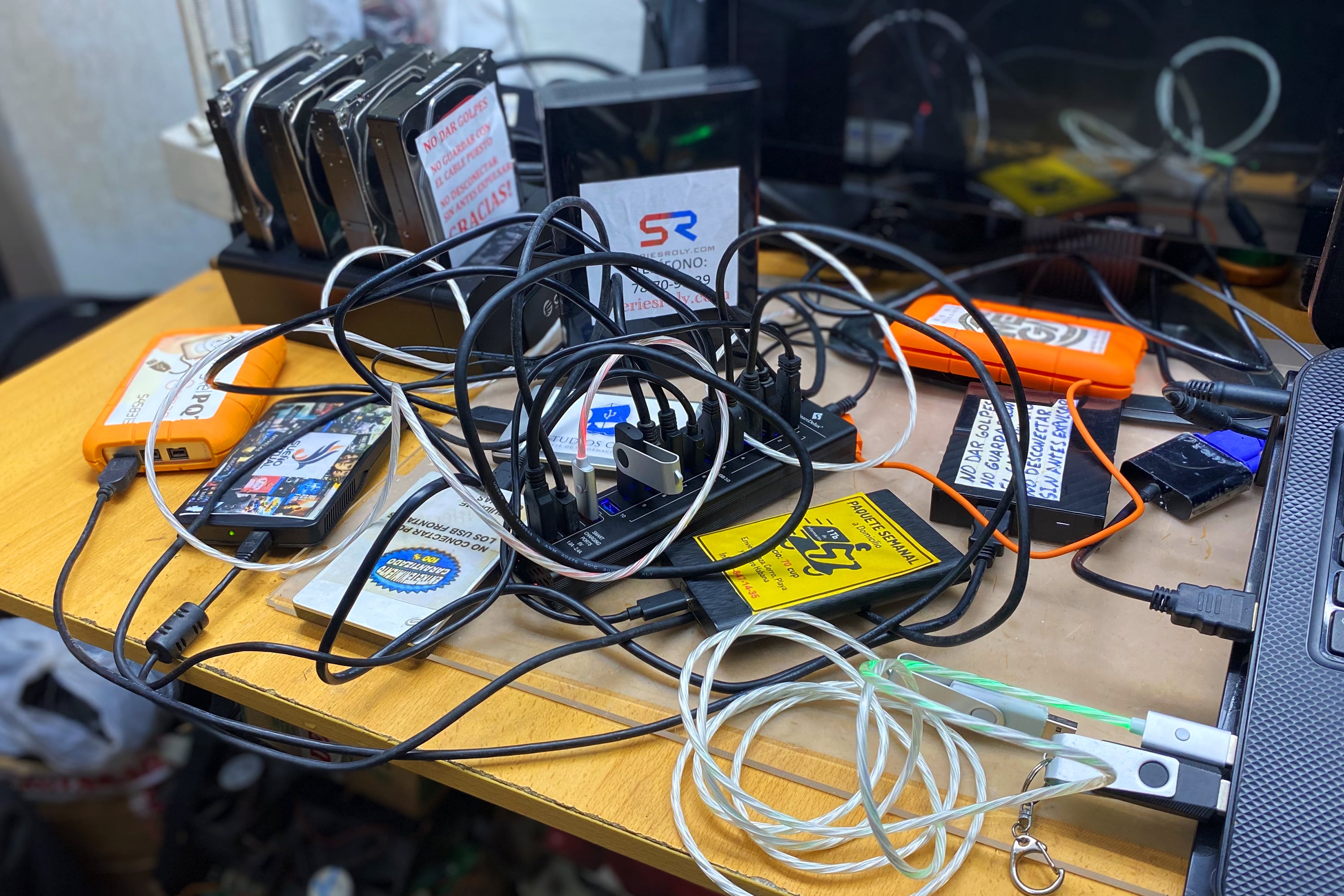Reorganizing the Internet
Reimagining digital culture from a Global South perspective (offline, alternative networks, offline digital distribution, sneakernets, human infrastructures, local servers, Global South perspective, alternative technology, decentralized practices, human algorithms, mesh networks, global south digital communities, gamer communities)
Cuban peoples’ access to the Internet and digital technology has long been restricted by their government’s fear of freedom of information and expression, as well as by the most enduring and punitive trade embargo in modern history. This has made the island one of the least connected countries in the world until only a few years ago. While the country’s internet is still characterized by slow speed, high cost, and inadequate infrastructure, Cubans have found ingenious ways to compensate for the lack of internet connectivity and affordability by creating massive vernacular infrastructures such as grassroots community computer networks or “sneakernets” in which information is transferred by physically transporting portable hard drives and USB memory sticks. In this artist talk give insights into their artistic research about Cuban alternative digital infrastructures that has resulted in interactive installations and a mobile game developed in collaboration with Cuban maker communities. Their work explores how global digital technologies become “localized” or appropriated in different cultural and political contexts. As the open web of the past has given way our current capitalist consumerist internet of closed platforms in which we are fed content that has been tailored to our algorithmically determined interests, such vernacular infrastructures allow us to envision more decentralized, (net-)neutral, non-commercial iterations of the web.
Img: Copying process of the Paquete Semanal, Filming Memoria © Steffen Köhn


